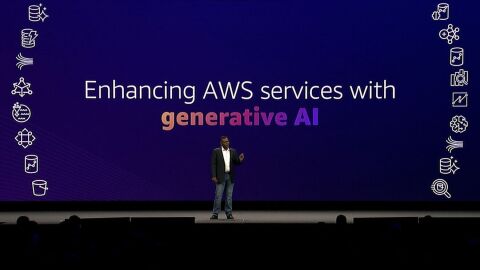Angie Ma had just completed a PhD in physics when she started the process of looking for a job where she could apply her expertise.
When she realised there was no clear pathway for recent graduates, she and two friends decided to make their own. They set up a programme to match graduates like her from subjects in science, technology, engineering and maths (STEM) to organisations across the UK who needed data science expertise. Those graduates would get the opportunity to apply their data science expertise during a six-week placement and project with a host company, and gain first-hand experience in the workplace.
“When I was looking to leave academia, I wanted there to be a programme like ours to help the transition into the world of work. But there wasn't one,” said Angie. “So, my co-founders and I thought, why not create it ourselves?”
Thanks to Angie’s vision, the Faculty Fellowship programme was born.
Soon, the first few cohorts from the programme began making tangible impacts on the organisations they were placed with. It wasn’t long before those businesses began asking Faculty to provide extra support on their more complex data science projects.
Faculty quickly transitioned from being just a talent pipeline for PhD graduates into a fully-fledged company of its own. Now, it is one of the fastest-growing tech companies in the UK, and employs PhD-qualified experts to help organisations around the world to solve operational challenges by applying AI solutions. For example, the company developed and launched ‘Faculty Frontier’, a forecasting software solution that helps organisations to see what is happening, predict what will happen, and decide the best course of action.

From its inception, the company has used a broad range of AWS services including Amazon Elastic Compute Cloud (Amazon EC2) for scalable compute capacity; Amazon Simple Storage Service (Amazon S3) for storage; AWS Lambda for serverless compute; as well as AWS machine learning (ML) services such as Amazon SageMaker for building, training and deploying ML models, and Amazon Rekognition for automated image recognition and video analysis. Using these services, Faculty’s fellows and in-house team are able to access to the most secure, flexible and reliable cloud infrastructure and services they needed to work on complex data science projects, including training and running AI models.
“Working with AWS has been incredibly important for a company of our size,” said Angie. “Without AWS behind us we wouldn’t have been able to get to where we are now.”
“Our story isn’t unique. AWS has been part of the journey within the AI sector itself – cloud computing makes our work possible.”
Ground-breaking tech with real world applications
One organisation Faculty has helped to harness the power of AI is the NHS.
At the height of the COVID-19 pandemic, Faculty provided the insight and infrastructure required for the UK’s health service to predict when it would run out of beds and ventilators, or suggest times when staff shortages might occur.
“Our work was an ‘early warning system’ to enable the NHS to manage their system-wide resources for their COVID-19 response, such as managing patient numbers, available ventilators and beds.
“This was a huge job and we had to make sure we had the infrastructure to support this, which is why working with AWS is so important. And because this involved hospitals and people’s health and wellbeing, a lot depended on that.
“We were able to deploy operational AI solutions that had a tangible benefit which improved patient discharge rates and addressed the bed-blocking crisis.”
Faculty uses the flexibility offered by AWS services to scale resources up and down automatically as needed, and the company says this is inherent to how its Frontier forecasting technology is built. AWS technology ensured its early warning system was secure and reliable, and able to manage the heavy workload of in-coming demands at rapid pace.
The size of the NHS meant Faculty had to adopt a scalable approach to manage this work all across the country. With the success of the project, businesses are now coming to Faculty to help with issues they too face on a national - or even international - scale such as supply chain and logistics issues.
“In the past year, with the tough economic climate, business customers have shown particular interest in deploying similar solutions to drive growth, improve efficiency and cut costs,” said Angie.
“Meanwhile, large public sector organisations are increasingly deploying AI to solve complex problems and deliver these sorts of tangible results.”
Changing the face of business and public services with the power of Artificial Intelligence
Since it was founded, Faculty has worked on over 300 AI projects for a wide range of industries and sectors. Another example is its work with the UK Home Office where it built AI solutions to detect and counter terrorist propaganda online. The company has also helped to optimise marketing spend for large retailers and detect payment fraud for financial providers.
More recently, the emergence of new AI tools, which have been made accessible to the public at large, has changed the general perception of what AI can do. According to Angie, this has led businesses to become more open to integrating AI into their internal processes.
“AI is making its way out of the lab and into the business world like never before,” she added, “and its value is becoming increasingly apparent. This trend has become undeniable, based on our experience delivering AI solutions to our customers.
“It has accelerated in the past few years, but the emergence of low-code and no-code AI tools has now lowered the barrier to entry for implementing AI solutions, making it possible to use it for some applications that previously required extensive technical expertise.
“These tools showcase the advances of AI in a way that the public can really understand. And it has captured the public’s imagination of how AI use can become common practice.
“This has created a growing recognition of the value of AI among businesses that are incorporating it into their operations to drive growth, improve efficiency and gain a competitive advantage.”
Fuelling the UK’s Artificial Intelligence talent pipeline
Underpinning the use of AI is the Fellowship, which is still running today and remains part of Faculty’s DNA.
Research from Gallup and AWS shows that 72% of businesses in the UK have a vacancy for workers with digital skills, but only 11% of the current workforce possess advanced digital skills. The Faculty Fellowship ensures a future data science talent pipeline for the UK, as well as a clear path for graduates to make their way into the world of work.
In addition, the Fellowship also gives graduates advice on how to build their CVs, as well as the interview skills they’ll need to land a job or a placement. It then matches the individual with a company, but if the pairing is an unsuccessful one, Faculty will go through the process again to ensure the placement has the best possible chance of being a mutually-beneficial one.
“What makes our programme unique is that every fellow has their own industry project with an industry partner. This means they immediately start to work on real world challenges.”
As well as working at Faculty itself, its fellows have also gone on to work with hundreds of the UK’s most exciting companies – including the BBC, Deliveroo and Rolls-Royce.
AWS has been there supporting Faculty’s business from the start, from helping PhD graduates to join the world of work, and providing vital AI services for businesses and public sector organisations across the UK.
Learn more about the women founders using AWS to launch successful businesses in tech.










